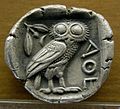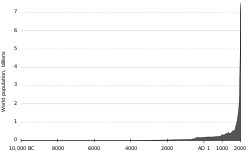The knowledge argument (also known as Mary's Room, Mary the Colour Scientist, or Mary the super-scientist) is a philosophical thought experiment proposed...
35 KB (4,716 words) - 14:44, 9 June 2025
Qualia (section Knowledge argument)
Conaill, Donnchadh (2024). "Qualia: The Knowledge Argument § 5. The Dualist View About the Knowledge Argument". Stanford Encyclopedia of Philosophy. Metaphysics...
82 KB (10,119 words) - 10:36, 8 July 2025
An argument is a series of sentences, statements, or propositions some of which are called premises and one is the conclusion. The purpose of an argument...
32 KB (4,260 words) - 05:58, 14 July 2025
Physicalism (section Knowledge argument)
most popular argument of this kind is the so-called knowledge argument as formulated by Frank Jackson, titled "Mary's room". The argument asks us to consider...
33 KB (3,899 words) - 14:27, 23 June 2025
proof, the argument from authority can be, and often is, an informal fallacy, and obtaining knowledge in this way is fallible. This argument is a form...
20 KB (2,015 words) - 16:25, 12 July 2025
developed the zk-SNARK protocol, an acronym for zero-knowledge succinct non-interactive argument of knowledge. The first widespread application of zk-SNARKs...
28 KB (2,884 words) - 15:45, 2 July 2025
Existence of God (redirect from Argument against the existence of God)
human a knowledge of God's existence. Islamic philosophers who developed arguments for the existence of God comprise Averroes, who made arguments influenced...
138 KB (22,209 words) - 03:00, 29 June 2025
A priori and a posteriori (redirect from A priori and a posterior knowledge)
philosophy to distinguish types of knowledge, justification, or argument by their reliance on experience. A priori knowledge is independent from any experience...
27 KB (2,936 words) - 15:49, 8 July 2025
Hard problem of consciousness (category Arguments in philosophy of mind)
of the knowledge argument claims not merely that Mary would lack subjective knowledge of "what red looks like," but that she would lack knowledge of an...
110 KB (12,805 words) - 00:59, 21 June 2025
distinction between two different kinds of knowledge: knowledge by acquaintance and knowledge by description. Whereas knowledge by description is something like...
28 KB (3,917 words) - 08:09, 16 June 2025
A transcendental argument is a kind of deductive argument that appeals to the necessary conditions that make experience and knowledge possible. Transcendental...
10 KB (1,309 words) - 23:28, 21 February 2025
Philosophical zombie (redirect from Zombie Argument)
to be a reason to reject his principle.: 449–51 Frank Jackson's knowledge argument is based around a hypothetical scientist, Mary, who is forced to view...
38 KB (4,727 words) - 13:43, 16 July 2025
possibility of experience and knowledge. A version was formulated by Immanuel Kant in his 1763 work The Only Possible Argument in Support of a Demonstration...
11 KB (1,226 words) - 10:54, 25 May 2025
antagonism through verbal fighting. Argumentation theory had its origins in foundationalism, a theory of knowledge (epistemology) in the field of philosophy...
48 KB (7,363 words) - 13:15, 24 May 2025
An argument map or argument diagram is a visual representation of the structure of an argument. An argument map typically includes all the key components...
61 KB (6,295 words) - 01:23, 1 July 2025
Epistemology (redirect from Knowledge (philosophy))
and limits of knowledge. Also called "the theory of knowledge", it explores different types of knowledge, such as propositional knowledge about facts,...
208 KB (20,062 words) - 05:48, 22 June 2025
knowledge is an awareness of facts that can be expressed using declarative sentences. It is also called theoretical knowledge, descriptive knowledge,...
95 KB (10,433 words) - 16:48, 25 April 2025
564-571, 2011. (2010) ‘The Knowledge Argument and Epiphenomenalism’, Erkenntnis 72, pp. 37–56, 2010. (2010) ‘The Ontological Argument and the Devil’, Philosophical...
13 KB (1,636 words) - 19:48, 8 July 2025
Infinite regress (redirect from The regress argument in epistemology)
infinite regress argument is an argument against a theory based on the fact that this theory leads to an infinite regress. For such an argument to be successful...
25 KB (3,336 words) - 16:17, 9 July 2025
Chinese room (redirect from Chinese room argument)
The Chinese room argument holds that a computer executing a program cannot have a mind, understanding, or consciousness, regardless of how intelligently...
95 KB (12,761 words) - 13:58, 5 July 2025
Unger, who uses this idea as an argument for skepticism. A distinction similar to the one between knowledge-that and knowledge-how was already discussed in...
187 KB (19,036 words) - 06:23, 7 July 2025
teleological argument (from τέλος, telos, 'end, aim, goal') also known as physico-theological argument, argument from design, or intelligent design argument, is...
113 KB (14,801 words) - 03:57, 17 June 2025
being—posited, for instance, in his opus Being and Nothingness through his arguments about the 'being-for-others' and the 'for-itself' (i.e., an objective...
26 KB (3,030 words) - 21:29, 14 July 2025
Mind–body dualism (redirect from Arguments against mind–body dualism)
as the science develops. Frank Jackson formulated his well-known knowledge argument based upon similar considerations. In this thought experiment, known...
99 KB (12,287 words) - 08:28, 12 July 2025
mind. In the latter field he is best known for the "Mary's room" knowledge argument, a thought experiment that is one of the most discussed challenges...
23 KB (2,332 words) - 00:23, 5 July 2025
Logic (redirect from Science of correct argument)
focuses on the epistemic role of arguments. It is based on the idea that arguments aim to increase our knowledge. They achieve this by linking justified...
145 KB (16,462 words) - 09:14, 30 June 2025
In the philosophy of religion, a cosmological argument is an argument for the existence of God based upon observational and factual statements concerning...
46 KB (5,372 words) - 20:12, 10 June 2025
The wax argument or the sheet of wax example is a thought experiment that René Descartes created in the second of his Meditations on First Philosophy....
4 KB (611 words) - 22:51, 26 November 2024
Master argument for the classical master argument related to the problem of future contingents. The master argument is George Berkeley's argument that mind-independent...
5 KB (709 words) - 13:54, 28 March 2025
The doomsday argument (DA), or Carter catastrophe, is a probabilistic argument that claims to predict the future population of the human species based...
42 KB (6,117 words) - 06:10, 6 July 2025












